Industry Day
At the RE’20 Industry Day, invited speakers will provide participants an overview of the challenges and the state of advanced practice in modern Requirements Engineering.
The RE’20 Industry day is organized by RE’20 in cooperation with SI-SE, the special interest group on software engineering of the Swiss Informatics Society, and with SAQ, the Swiss Association for Quality.
Program
| 10:30-10:45 |
Opening |
| 10:45-12:00 |
Session 1: Keynote Business Analysis Agility: How business analysis works with agile development Abstract — Business analysts are just as indispensable as they always have been, but now we need to work differently, in a more agile way, to fit with agile development. This talk shows you how to do that. It is about three things: |
| 12:00-13:00 | Lunch |
| 13:00-14:30 |
Session 2: Invited Talks On the way to trustworthy highly-automated CPS — Some thoughts on safety and security requirements in the age of autonomous systems and machine learning Abstract — In the traditional view coined by Edward A. Lee, a cyber-physical system (CPS) consists of embedded systems which are interconnected by a technical network. Nowadays, CPS are no longer restricted to fixed (invariant) connections with other systems throughout their life cycle. Today, and even more in the future, such systems are able to dynamically form cooperating or collaborating groups in order to fulfil their mission in the best possible way. CPS with these capabilities are the technological foundation for many of our future scenarios, like in autonomous transportation, Industry 4.0, smart medical devices, and smart energy networks. In these scenarios, CPS typically need to operate autonomously to a great extent but not necessarily in all operational situations — viz., they are “highly automated”. Whether highly-automated CPS actually meet with broad acceptance will largely depend on whether we as humans can build trust in such systems. A core aspect for building trustworthy highly-automated systems is to guarantee safety and security in operation, even in the case of unforeseeable situations in the operational environment. Designing adaptive digital ecosystems Abstract — In our increasingly complex and hyperconnected world, digital ecosystems are coming to the forefront as the business model of the future. Instead of building and accumulating internal assets and expertise organizations can now be far more nimble, experimental and capital-efficient by connecting ecosystems of people, information and infrastructure that already exist. Pioneered by companies such as Uber or Airbnb, such ecosystems enable companies to co-create value beyond traditional enterprise boundaries and continuously evolve their services in partnership with external collaborators and customers. |
| 14:30-15:00 |
Break |
| 15:00-16:30 |
Session 3: Invited Talks An aligned agile approach for strategy and portfolio management Abstract — In 2016, Die Mobiliar transformed parts of the development organization towards the scaled agile framework SAFe. Within the last three years, Die Mobiliar optimized the agile way of working by adapting SAFe toward the needs of the organization. An important step of this adoption is the consistent alignment from strategy towards a lean portfolio. The agile framework SAFe does not include this bridge between strategy and a lean portfolio. Digital Design — Thinking beyond Requirements Engineering Abstract — The possibilities of digital technology enable innovative services and all-new business models and thus lead to comprehensive and disruptive changes in the economy and society. Digital transformation is an umbrella term for this development. |
| 16:30-17:00 |
Break |
| 17:00-18:00 |
Session 4: Experience Reports Agile requires IoT in our minds Abstract — How often does it happen that requirements go back and forth between stakeholders and the development team because the context or the goals are not clear? I guess very often. When implementing agile methodology, there is a tendency to delegate the analysis of the big picture, drawing the red line or simply connecting the dots to the scrum team. But the main reason why we decided to work agile is to prevent high failures, identify potential risks and their consequences as soon as possible. So what if we start asking the stakeholders placing requirements to start engineering upfront? Are we using agile work more in a vertical perspective rather than as E2E value chain? Requirements engineering for the "smart" AI world: the digital realm of Digital Twins and contextual business applications Abstract — Digital Twins are the key to unlocking the future of fully integrated digital businesses and ecosystems across synergetic business processes with interlaced contexts and relevant AI analytics. These multi-context Digital Twins maintain the understanding of temporal situations (state, ad-hoc, historical and current) over separate domains, as well as predict and simulate outcomes. In AI, the quality of classification depends on the nature of labeling and quality of the training data. Yet in such digital twins, the context that is captured as relations between collected entities, is as important. Such contextual business applications require contextual (graph-model) requirements capturing. Even more so, since content vary in time, training the AI should include the ability to maintain the context, i.e., the discovered ontology. As the ontology expand, labeling of data elements should change as well. Namely, modeling digital twin instances and the ontology used in the model should be part of the requirements definition. Categories, labeling, and the ontology captured as knowledge graphs, as well as linkage to the captured data should all be part of the requirements modeling as early as possible in the development cycle, and not part of the system construction or AI training. |
| 18:00-18:30 |
Session 5: Wrap-Up Plenary discussion with all speakers Closing |
| 19:00 |
Reception at Zunfthaus zur Meisen (if we can hold the Industry Day physically) |
About the Speakers
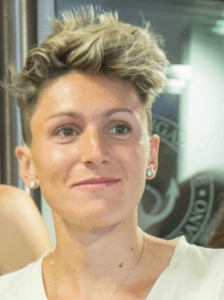 |
Sara Bertone eCommerce and Performance Manager, Zurich Insurance, Switzerland |
| Born in Rome (Italy), Sara Bertone made her Bachelor and Master’s in business administration at the University of Fribourg. From there she moved to Bern to start her first position as product owner in a small IT company, in charge of developing a software for process and risk management, mostly for the public administration. Almost 6 years ago she joined Zurich Insurance Company. First she worked as a junior project manager on the IT side and then switched to the business side in the Digital Business Team in May 2016. At this point, she started seeing things differently. Facing the constant challenge of bringing added value to customers, she and her team learned what agile thinking and agile working means. Outside the office she likes fixing and riding bicycles, consume as much wind as she can on the windsurf board (her new passion) and discovering the best gelato around the world. She says that she can eat gelato every day — and and she’s serious about it! | |
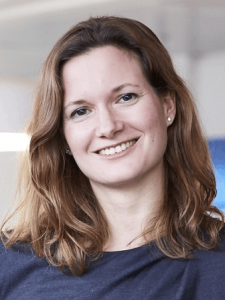 |
Vania Bosshart Head of Business Architecture & Process Management, Die Mobiliar, Switzerland |
| Since 2015 Vania Bosshart is working as Head of Business Architecture & Process Management at Die Mobiliar. In her role as Lead Enterprise Architect she was significantly involved in defining, planning and executing the agile and organizational Transformation (based on SAFe) from the very beginning. After her master degree in information technology from the Federal Institute of Technology in Zurich, she joined Accenture where she worked as Senior Manager in the insurance capability group. In her professional career, Vania looks back on more than a decade of experience in transformation programs, covering a variety of assignments in national and especially international insurance companies. She is a passionate change driver and eager to exploit new paths of agile development principles and business analysis. | |
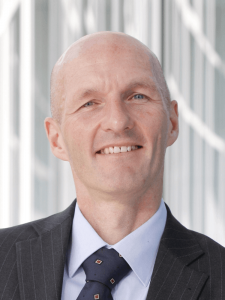 |
Rainer Grau Komplexdenker & Humanist, Managing Partner pragmatic solutions, Switzerland |
| Since over twenty years, Rainer Grau has been engaged with or within companies around the topics agility, lean, leadership, enterprise architecture, lean organization – or to say it differently: he engages in continuous improvement to integrate modern ideas and new approaches in technology, architecture and organizational design with the goal to design self-adapting organizations that succeed on the market and where employees love to work because the job generates value and fun. Starting his life as software engineer in the last millennium, his professional life shows many and various steps: distinguished consultant and partner at Zühlke Engineering; head of business development at Digitec Galaxus; founder of the Suisse Agile Leader Circle SALC; lecturer at universities in topics around innovation, agility, business agility; founding member of the International Requirements Engineering Board IREB; speaker in many conferences and venues. Rainer is engaged in the agile community in Switzerland with a long-time passion. Discover more information on www.rainergrau.com. | |
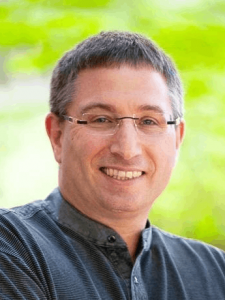 |
Ethan Hadar Chief Research Officer Europe, Accenture Labs, Israel |
| Ethan Hadar is the Managing Director and Chief Research Officer of Europe for Accenture Labs. Accenture Labs’ seedbed and innovation hub are driving innovation in Cyber Security, Digital Twins, Automatous Objects, AI, Industrial IoT, Smart Industrial Engineering, and Software Engineering. Prior to joining Accenture, Prof. Hadar worked in the US, Europe, Asia, Middle East and Israel with IBM Research, CA Technologies, AGT, and HP. He served as Senior Vice President for research, CTO, and Chief Architect. Prof. Hadar is a distinguished engineer with 60 patents and 65 peer reviewed published articles and over 50 invited talks at industrial venues and scientific global conferences. He is a faculty member of Zefat Academic College, Department of Information Systems, and holds a PhD in Operations Research and Systems Analysis and M.Sc. in Mechatronics from Technion, Israeli Institute of Technology. | |
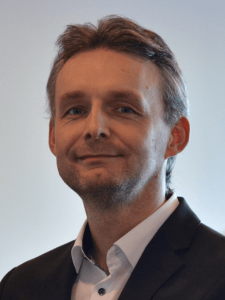 |
Kim Lauenroth Chief Requirements Engineer, adesso SE, Germany |
| Kim Lauenroth is first chair of the International Requirements Engineering Board (IREB) e.V., and chief requirements engineer at adesso SE, one of the leading IT providers in Germany, Switzerland and Austria. Kim has over 15 years of experience in software and requirements engineering in different domains and in various roles including requirements engineer, project manager, and consultant. As chief requirements engineer, he is responsible for the overall quality of RE methods in his company and helps his customers to develop effective and pragmatic methodological cultures for software development. Kim received his PhD in the field of requirements engineering and studied computer science, business administration and psychology. | |
 |
Suzanne Robertson Principal and Founder, Atlatic Systems Guild, UK |
|
Suzanne Robertson is enjoying a stellar career in business analysis, information technology and systems engineering. She is a teacher, practitioner, writer, instructor, and guide. Suzanne is a pioneer in adapting ideas from other domains for automated solutions. She has collaborated in workshops using experts from fields as diverse as modern music, visualization, and cookery. Ideas from these domains were adapted to make major breakthroughs in creative ideas for domains ranging from air traffic control to local government. She has authored and co-authored seven books – for example “Mastering the Requirements Process” is in its third edition and is widely used in both commercial and academic fields. Her latest book is Business Analysis Agility focusing on how Business Analysts can work with agile development teams. Suzanne has published numerous papers, courses and videos and has presented workshops and keynotes at a variety of conferences. She is the co-creator of the Volere requirements techniques and the Volere requirements template. She was the founding editor of the Requirements Column in IEEE Software. For more on publications and videos please refer to www.volere.org Suzanne is a founder and principal of the Atlantic Systems Guild a systems engineering think tank. She is currently collaborating with her colleagues on a project that explores Workplace Culture – what influences it and how to bring about positive changes. Her other interests include opera, cooking, skiing, and finding out about curious things. |
|
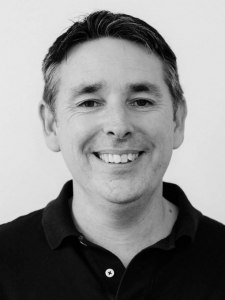 |
Ian Thomas Chief Strategy Officer, Fujitsu RunMyProcess, UK |
| Ian Thomas is a Fujitsu strategist currently serving as Chief Strategy Officer of Fujitsu RunMyProcess, a Fujitsu software subsidiary focused on helping customers create value through ecosystems and integration. Ian is also a prolific contributor to Fujitsu content and external peer-reviewed conferences, publishing a range of papers on business models, ecosystems and the Internet of Things. In this context, Ian has also has been invited to deliver a number of talks and lectures at various events around the world. Outside of Fujitsu, Ian actively supports the wider technology and startup ecosystem, serving as an advisor to numerous research and technology-based organizations. | |
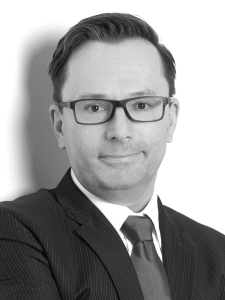 |
Thorsten Weyer Senior Research Associate, paluno – The Ruhr Institute for Software Technology, University of Duisburg-Essen, Germany |
| Thorsten Weyer leads the group ‘Requirements Engineering and Conceptual Design’ at the Ruhr Institute for Software Technology (paluno) at the University of Duisburg-Essen. He also was an interim full professor for practical computer science at the University of Koblenz. Over the last years, Thorsten has held several leading positions in large-scale research, development and technology transfer projects with well-known industrial companies as well as small and medium-sized enterprises from the high-tech sector. His current personal research focus lies in the field of engineering methodologies for highly-automated collaborative cyber-physical systems. Thorsten has (co-)authored more than 80 scientific publications, many of them in the field of model-based requirements engineering for embedded and cyber physical systems (CPS). | |

